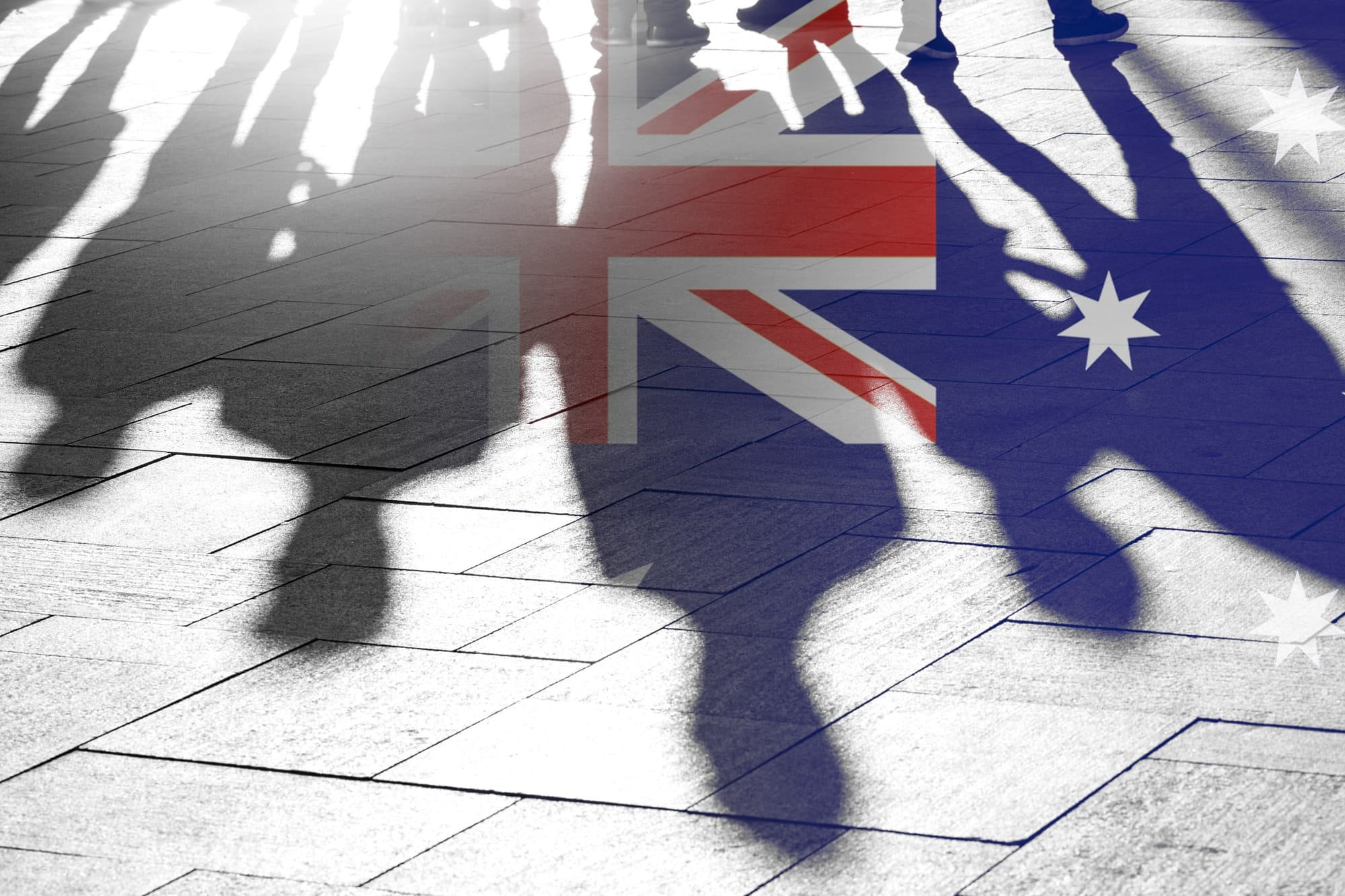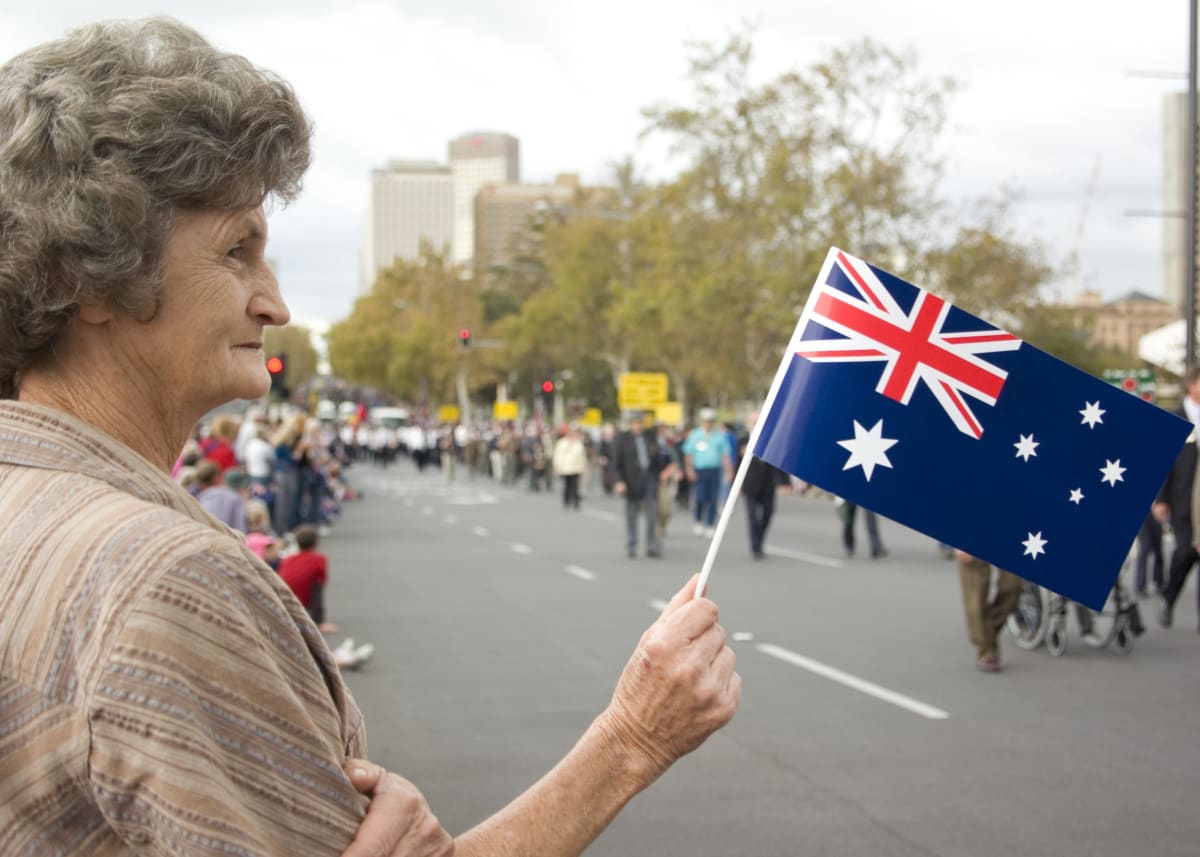
With just six months to go before Australians decide on the Voice to Parliament referendum, questions about contemporary Australian government and society are at the top of the political debate.
While the nation debates about how it will proceed in the future, in our latest paper published in the British Journal of Politics and International Relations, we identify how major strategic decisions and debates about national values have been shaped by Australia’s role in the “Anglosphere”.
What is the ‘Anglosphere’?
The term can be used as a shorthand way to refer to English-speaking countries who share common liberal democratic values. In particular, the US, the UK, Canada, New Zealand, and Australia are often regarded as making up the Anglosphere.
Notwithstanding the emphasis on liberal democracy, the Anglosphere tends to be a project of the right-wing of politics in English-speaking democracies.
The labelling of this loose political community as “the Anglosphere” emerged in the late 1990s, and has continued to impact international relations.
During the Brexit referendum in 2016, for example, the UK’s then-secretary of state for environment drew heavily on the Anglosphere idea in advancing the successful “Leave” campaign.
More recently, at the G7 summit in 2021, a “New Atlantic Charter” was agreed to by the heads of governments from the UK and US.
Further, the security agreement between Australia, the UK and US (AUKUS) announced in 2021 reflects the strong strategic relations between Anglosphere countries. Australia’s decision to ditch the contract to build submarines with France, and turn to the UK and US for nuclear submarine technologies, reflects the strength of trust between these English-speaking countries.
How did we get here?
Australia’s political leaders have played an under-researched role in the creation of what is now called the Anglosphere.
In the post-war years, for example, Australia’s longest-serving prime minister, Robert Menzies, maintained fervent support of Britain. As a monarchist, he had proudly proclaimed that he was “British to his bootstraps”. Further, he had signed the ANZUS treaty in 1951.
Yet there was always a counterpoint to this Britishness. More contemporary prime ministers sought to build closer links with Asia and the Pacific.
In the 1990s, PM Paul Keating, for example, emphasised the importance of economic ties with regional countries. As the leader of the Labor Party and a republican, Keating had hoped Australia would become a republic by the start of the 21st century.
Incidentally, Keating has been unabashed in his criticism of the recent AUKUS submarine deal.

The significance of the 2000s
When Keating lost the 1996 election to the John Howard-led Coalition, the contestation over which institutions and values should define being Australian helped create the contemporary Anglosphere.
Howard was strongly opposed to Australia becoming a republic, and was blamed for breaking “the hearts of Australians” by maintaining his position in the leadup to the unsuccessful republic referendum in 1999. As an elder statesman, he spoke in favour of the Anglosphere idea at think-tanks in the US.
The Howard government also implemented a civics and citizenship curriculum in Australian schools, which was bolstered following the 9/11 terrorist attacks in the US with the strengthened focus on the “Anzac legend”.
An example of this was the “Values for Australian Schooling” introduced in the last term of the Howard government between 2004 and 2007. It featured values such as “fair go” that were printed on a background that featured Simpson and his donkey.
This also coincided with the government’s decision to provide new flagpoles to schools so that they could display the Australian flag, while the education minister advised that if people didn’t appreciate “Australian values”, they could ‘clear off’.
Read more: AUKUS and Australia’s folly: The nuclear submarine deal, and its inherent and present danger
None of these Australian projects were formed in isolation from a political reinvigoration of conservative values shared among “party families” in the UK, US, New Zealand and Canada. These policy debates in the 2000s helped shape conservative agendas in these countries during the 2010s.
The Rudd and Gillard years seemingly placed renewed emphasis on Australia engaging with Asia, but this agenda was superseded by Tony Abbott following the 2013 election result.
Abbott was also an arch-monarchist, having served as the leader of Australians for Constitutional Monarchy in the 1990s, and an explicit proponent of the Anglosphere idea.
As prime minister, he reintroduced knighthoods, and remarked that Sydney was “nothing but bush” before the First Fleet arrived at a speech for the then-British prime minister David Cameron. Since leaving office, Abbott has become a trade adviser for the UK government.

What does it mean now?
As we point out in our paper, the contestation over Australian nationhood in the 1990s and 2000s played an under-researched part in the genesis of this idea.
The impact of PMs Howard and Abbott in particular have strengthened Australia’s links with Anglosphere nations, especially the UK. The Albanese government’s recent decision to proceed with the AUKUS submarine deal consolidates an otherwise amorphous yet powerful Anglosphere idea in international relations.
Domestically, as the date for the Voice to Parliament referendum nears, the impact and significance of the Anglosphere continues to have major implications for Australia’s domestic policy settings and institutionalised sense of self.





